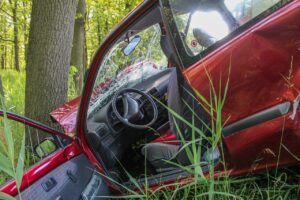Most people understand and accept that there are strict rules about consuming alcohol and what might happen if an intoxicated person drives, takes control of a boat, or behaves unreasonably in public. In Massachusetts, it is illegal to consume alcohol if you are under 21, drive or operate a boat with a blood alcohol greater than 0.08% (or less for a commercial driver or boat operator). Unfortunately, there are people who ignore alcohol laws or risk being caught by police and may end up injuring or killing other innocent people who had nothing to do with that person’s drinking.
What many people are not aware of is that there are other laws in Massachusetts that make commercially licensed providers of alcohol or hosts of social gatherings liable if an intoxicated customer or guest is knowingly sold or given alcohol. The two main alcohol liability laws in Massachusetts will be discussed further below.
Drunk driving the main risk of intoxication

Drivers know that they shouldn’t drink any more if they have drunk more than a minor amount. Although the state blood alcohol limit for driving is 0.08%, this is not a figure that many drinkers are able to judge correctly and doesn’t take into account variability in the effects of alcohol based on gender, age and individual response to alcohol consumption.
The only safe choices after drinking at a party, work event or in a bar, restaurant, night club or hotel is not to drive at all, organize a dedicated driver, or take a cab or public transport. Anyone who drinks and drives and is involved in an accident is likely to be charged with OUI at least and more serious offenses if someone is injured or killed.
Drivers whose intoxication has caused an accident may not only face criminal charges but a personal injury claim from a victim of their negligent driving. All drivers in Massachusetts are expected to have a minimum amount of insurance cover which may or may not be enough if they face a claim against them.
Alcohol liability laws : The so-called dram shop law
Massachusetts not only expects individuals to be responsible drinkers. They expect anyone who serves customers in a licensed property, such as a bar, night club, restaurant or hotel to monitor the consumption of alcohol by their customers and refuse to serve them if they believe they are intoxicated. One of the two main Massachusetts’ alcohol liability laws make licensed alcohol providers liable for the behaviour of any customer who is involved in an accident after leaving the place where they were drinking if it was known that they were intoxicated when they were sold alcohol. This is colloquially known as the “dram shop law” after an old English name (dram) for a shot of alcoholic drink at a pub or bar.
Liability for knowingly serving alcohol to someone who is already intoxicated is not reduced to customers who go on to cause vehicle accidents. Even customers who are involved in a brawl, an assault, or other crime whose behaviour was made more likely because they were intoxicated in a licensed property may not be the only ones facing a personal injury claim. Anyone injured as a result of the behaviour of an intoxicated individual may find proof that they were knowingly served alcohol when already intoxicated earlier when in a licensed property. If they have proof that this occurred, then they may have sufficient evidence to sue the management or owner of the licensed property.
Well managed commercial providers of alcoholic drinks will have established training programs for their staff so that they can understand the signs that indicate that customers are intoxicated and how they should handle any requests for further purchases of alcoholic drinks. Staff should also be made well aware of the possible repercussions if an intoxicated drinker is allowed to purchase more drinks and / or is known to be leaving to drive away from the property.
Part of the training of staff also involves ensuring that no minors are sold alcohol. Any potential customer who asks for an alcoholic drink is expected to provide evidence that they have suitable i.d. to show that they are 21 or over. The liability for serving a minor who hasn’t shown proof of their age is the same as for serving an already intoxicated adult.
Licensed providers of alcohol must now carry a minimum liability insurance of $200,000 per individual and $500,000 per accident in the event that they are sued under the dram shop law by an individual who is injured by an intoxicated customer. Many licensed properties deliberately choose to take on a greater insurance cover than the state’s legal minimum to protect themselves from a potentially expensive personal injury lawsuit.
Alcohol liability laws: Social host law

People who drink to the point where they are intoxicated are risking their own lives and others who had nothing to do with their drinking and therefore must face the emotional, psychological, physical and legal consequences of their negligence. In addition, as with licensed properties and the liability they have for knowingly serving an intoxicated customer, hosts of social events also have responsibility for the actions of any guest who they know have consumed too much alcohol at their property and go on to cause an accident, damaging property, injuring or killing others. This second state alcohol liability law is colloquially known as the “social host law.”
If you, or a family member, have been injured in an accident caused by a drunk individual and have evidence that the individual was knowingly served alcohol even though already intoxicated by a social host or licensed business, you should talk to an experienced personal injury attorney who understands the implications of the state’s alcohol liability laws and can help you claim compensation that can help mitigate the cost of an injury for which you were not responsible.
